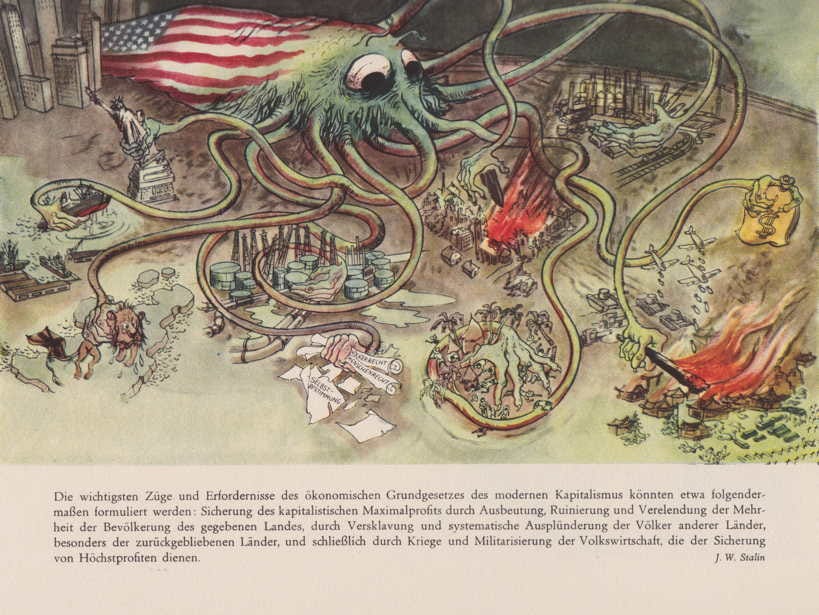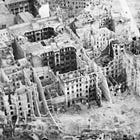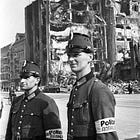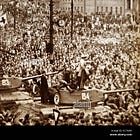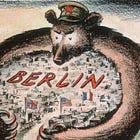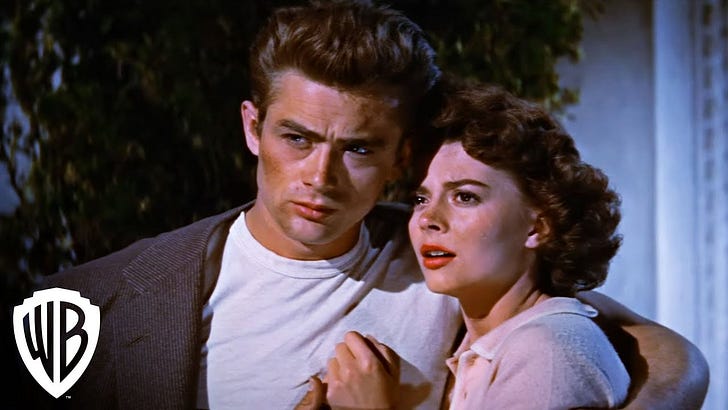Crime, Politics, and Ideology in Cold War Berlin
Ideology Shaped How the East and the West Explained the Origins of Criminal Activity
The Cold War: Uniquely Interesting
The Cold War is perhaps one of the most fascinating periods in recent history. Teeming with social, political and ideological tensions, with proxy wars fought around the globe between two starkly differing views of how humans should be, it resulted in some of the most significant reconfigurations of humanity as we know it. Countries were being formed and reshaped, and masses of humans were often forced to migrate. It is hard to overestimate the sheer impact and scale of the Cold War. Decisions made in the Soviet Union and the United States shaped much of the modern world. Both of these nations had been scarred by two world wars. Consequently, historians and other commentators have produced countless pieces of media, literature, and academic work about this subject.
Berlin was at the center of the early Cold War. A city unwittingly chosen as one of the main stages for two of the deadliest wars ever recorded, which later served as a petri dish for world superpowers to confront their political and philosophical ideologies against each other. In the same city, capitalism and communism competed to see which one resulted in the best model of society. Yet, when discussing this tragic experiment and its repercussions, one aspect of life in Cold War Berlin is often overlooked. That is, the influence of crime and criminology in the social, economic and political spheres of a broken city. The Cold War was also fought in the world of ideas whereby each system’s assumptions shaped how they explained the world.
Last year, we took it upon ourselves to document and study the relationship between crime, policy and decision making by local and international governments in the city of Berlin during the Cold War. We believe that this series of articles truly represents our spirit and intention with the work we are doing at Curing Crime. That is, a deep and intentional effort to understand human behavior and crime throughout history, following a rigorous and unbiased approach to study these topics. For that reason, we wanted to revisit each entry of the series, and invite you to take a brief look at this fascinating time.
Bombed, Broken Berlin
After the Second World War, the city of Berlin was left in shambles. Buildings and infrastructure were destroyed, and the Nazis were taken out of power to be replaced by Allied forces. Its neighborhoods were cut out into pieces and given out to the Americans, Soviets, British and the French to govern as they saw fit. This chaos and reorganization gave way to weeks and months of social, political and economic instability. Thus, crime quickly found its way among the streets of a devastated Berlin. The aftermath of the war would shape the views and understanding that the East and the West would hold about crime in years to come. To understand more about how this process began, take a look at our first article in the series.
Rebuilding Berlin
The reconstruction of Berlin began soon after the end of the war. The chaotic and desperate climate that reigned in the first few months led many citizens to crime as a means of survival. Certain policies enforced by the Allies exacerbated economic and social conditions. As a result, the need for a policing force arised, albeit its creation and implementation facing multiple challenges. In our second article, we looked at the many efforts made to restore order in a lawless city.
East German Criminologists Claimed Western Influences Caused Crime
The causes of crime were inevitably subject to debate in post-war Berlin, with each side coming up with their own explanations. These theories reflected their contrasting world views. East German criminologists weaponized crime and its alleged causes to condemn and criticize the West and the capitalist ideology, while exalting the alleged superiority of their socialist views.
East Germany, Crime & the "dehumanizing effects" of capitalism
In the next iteration of the series, we took an ever deeper look at the use of propaganda by the East German government to justify their failing social and economic policies which were ineffective in dealing with crime. Furthermore, their incessant condemnation of the principles upheld by the West, and their efforts to blame their failings on the influence of capitalist ideology in a desperate population.
Youth Crime, Capitalism and Why Communism Sucks
In a similar fashion to East German criminologists, their Western counterparts were looking for an explanation in the driving factors behind criminality. Unlike their East German neighbors, some Western commentators recognized their own limitations in creating a system that dealt with crime effectively. Specifically, when it came to dealing with youth crime, which was perceived as the most pressing concern. However, they believed that while reform was needed, the nature of capitalism was much better equipped in dealing with this issue, as they saw the roots of crime in the devastated economic situation of the country, as opposed to principles or ideals.
Crime, Cinema, and Cold War Berlin
Media and cinema also served as an ideological front for the Cold War. Both sides were actively looking for ways in which to prove the effectiveness of their political philosophies, and this discussion was also reflected in their views on film. East Germans politicians saw Western films as a means of corruption, with the capitalist system always prioritizing profit over morality. On the other side, commentators argued that films were not the issue, but rather the post-war world in which the young were forced to live in.
Young Criminals in Berlin: How the Cold War Changed German Criminology
To conclude our series, we highlighted the main arguments, uses of propaganda and the multiple fronts in which both East and West Germany argued around the causes and consequences of crime in Cold War Berlin. Also, the way in which these discussions not only reflected their respective ideologies, but how these influenced policy making and human behavior.
We hope you enjoyed this brief overview of criminality and criminology in Cold War Berlin. We consider this to be one of our favorite efforts to portray the relationship between crime and our approach to understanding the world. If you are interested in reading more about crime, science and policy, subscribe to our newsletter.
These posts are based on a paper Christian wrote for a class on everyday life in Cold War Berlin. Recently, Christian learned that his TA for this course passed away. He would like to celebrate Caroline R and her dedication to making history accessible, intriguing, and thought provoking.




